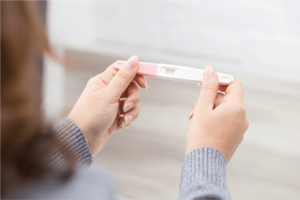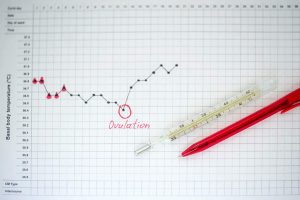Can I get Pregnant if I Have Cancer?

A cancer diagnosis can change everything in your life overnight—including raising questions about having children after cancer. Whether or not you can get pregnant after cancer treatments depend upon a number of factors, including your type of cancer, the treatment of your particular disease, and your overall health.
Some of the most common types of cancer treatment can affect your ability to conceive. For example, some chemotherapy medications, which target rapidly dividing cells including cancer and hair cells, can also affect reproductive organs. One type of chemotherapeutic agents that falls into this category include a group known as alkylating agents. An example of this medication type is Cytoxan (cyclophosphamide), a type of chemotherapy often used to treat breast and ovarian cancers.
Radiation treatments may also affect fertility, particularly if the treatments are focused on the reproductive organs such as the ovaries. Surgery to remove a portion of the reproductive organs can also affect the ability to conceive naturally.
While it is not always possible to protect the reproductive organs from the effects of radiation and chemotherapy, physicians can employ certain tactics to limit the damage they can cause. One simple way to do this is to place protective shields, such as lead vests, over the organs during radiation treatments. For this reason, it is important to discuss your potential plans for conception with your physician before beginning treatments.
Other safeguards are more complicated and include banking embryos or sperm, which can allow you to preserve your eggs or sperm prior to undergoing cancer treatments that can damage the production of these cells. You can talk to a reproductive specialist to determine if this is an option for you, even if starting a family is not something you want right away but may consider at some point in the future.
In general, if you are currently undergoing chemotherapy treatments or radiation, trying to become pregnant while in treatment is not advised. Most drugs and radiation treatments can be potentially harmful to a baby during pregnancy.
But what if you conceive despite trying not to, or have a new cancer diagnosis made while you are already pregnant? While this is thankfully rare, some women are diagnosed with cancer during their pregnancy. For example, breast cancer is the most common cancer form diagnosed during pregnancy, affecting an estimated 1 in every 3,000 women, according to the American Cancer Society. While it is possible to undergo certain cancer treatments during pregnancy, risks, and benefits to both mom and baby must be weighed. In these situations, it is definitely a good idea to involve a maternal-fetal medicine specialist (also known as a high-risk OB/GYN) in the planning of your treatments along with your oncologist (or cancer specialist).
If you have hormone-related cancer, such as certain types of breast cancer, a physician may advise you to wait anywhere from three to five years after your cancer is in remission before attempting to conceive. This is because pregnancy could increase your chances for cancer to recur as these hormone levels increase in pregnancy. If you are able to conceive at this time, your doctor will carefully monitor you to ensure your cancer has not returned.
Sources:
- American Cancer Society: Pregnancy and Breast Cancer
Kids Health: Can I Have Children After Cancer Treatments?
MedlinePlus: Tumors and Pregnancy
National Cancer Institute: General Information About Breast Cancer and Pregnancy
Parents: Can I Get Pregnant After I’ve Had Cancer?
The Society of Obstetricians and Gynaecologists of Canada: Cancer During Pregnancy
Susan G - Komen: Treatment During Pregnancy
Powered by Bundoo®










